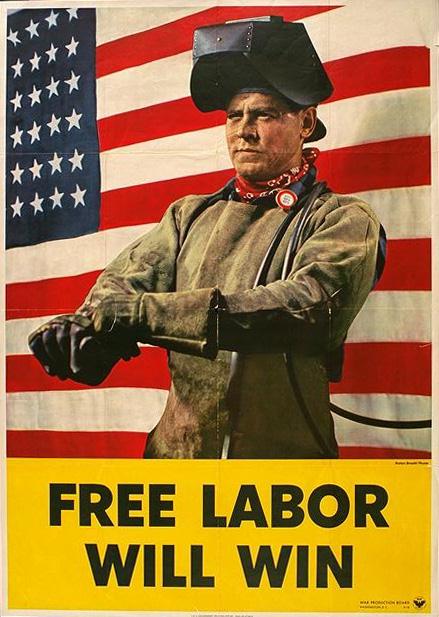You're not just the product, you're the (unpaid) employee too
With the rise and subsequent IPOs or gigantic acquisitions of the largest social networks like Facebook, Twitter, LinkedIn, and Instagram, an often-repeated observation about the users, (and source of content/value) for these platforms has been, 'You're not the customer, you're the product.'
The idea in the sentiment is simple - the end users of these social networks create all the content via status updates, photos, or in the case of LinkedIn, a catalog of all your professional credentials, and the owners of the networks then package, parse, and sell this information to (variously), advertisers, 'power users', or other services. And as long as the individual value equation for consumers/users remains in balance, i.e. you feel like you are extracting more value out of say using Facebook than your perceived cost of allowing Facebook to sell ad space that shows up in your feed every time you open the app, then you happily will continue to use the service, supply more content/inventory, and keep the machine running.
Remember, you are not the customer, you are the product.
But if you are the product, or more accurately, you are an active contributor to building the product, then would it be too far a stretch to say that you are also the employee?
Take a quick look at this piece on Business Insider about a recent case being raised by some power users of the review site Yelp, that derives all of it's value from the end user comments, ratings, and reviews of restaurants and bars.
A group of reviewers recently filed a class action lawsuit against Yelp, claiming that the company should treat them like employees and pay them for their reviews.
The suit argues that since Yelp's business model and success is dependent on its over 42 million user-submitted reviews, the company technically employs those users and should fork over some cash (wages, reimbursement of expenditures, and damages). The plaintiffs believe that willfully volunteering to share their thoughts about a business makes them employees because Yelp can only make money if it has their reviews.
Yelp, which went public in 2012, told Circa that the case is a "textbook example of a frivolous lawsuit" and said that the law does not support the idea that voluntarily using a free service equates to an employment relationship.
Sounds kind of crazy, right?
I mean, Yelp or LinkedIn or Facebook does not force you to create content for them or to have a profile on their networks.
There really is no hint of an employment agreement or relationship that is established between any of these services and their users. So it does seem on the surface anyway, that the Yelp user's lawsuit doesn't have much merit.
But if we seem to pretty easily accept the entire notion of 'You are not the customer, you are the product', then why doesn't it make logical sense to take it to the next step, in that you as one of the millions of builders of at least an element of that product should not be compensated somehow?
Every time I get an email from LinkedIn pitching me to upgrade to one of their premium, paid accounts of some kind, I have the same reaction (I say this out loud too, although no one seems to listen) :
"Pay for a LinkedIn account? They should be paying me."
And they should be paying you too.

 Steve
Steve
Reader Comments